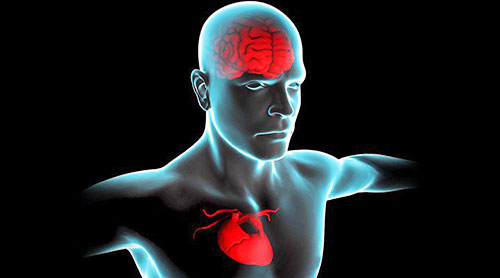|
by Arjun Walia
A group of prestigious and internationally recognized leaders in,
...among other disciplines, have been doing some brilliant work over at the Institute of HeartMath.
The Institute of HeartMath is a (well recognized) non-profit research and education organization dedicated to helping people reduce stress, self-regulate emotions, and understand something that is commonly overlooked in mainstream biology: the intelligence of the heart and its effect on the brain.
A large portion of their research dives into heart and brain interaction, how they communicate with each other and how that affects our consciousness.
For example, when a person is feeling really positive emotions like gratitude, love, or appreciation, the heart beats out a different message, and because the heart beats out the largest electromagnetic field produced in the body, the institute has been able to gather a significant amount of data.
According to Rolin McCratey, Ph.D, and director of research:
The Heart Sends Signals To The Brain
Scientists have long believed that it was the brain that sent information and instructed the body on what to do, and when to do it.
This includes the heart, but we now know (thanks to researchers like those at HeartMath) that the heart actually sends signals to the brain, just as the brain sends signals to the heart. In fact, the heart actually sends more signals to the brain than the brain sends in return. What's even more amusing is the fact that these heart signals (from heart to brain) actually have a significant effect on brain function.
To me, this is amazing.
The fact that the heart produces the largest electromagnetic field in the body, and the fact that it sends more signals to the brain rather than vice versa shows us that the heart plays a much larger role in our biology than what we previously believed, and that it (the heart) may be a major commanding center of the body, in the same way we think of the brain.
So far, the researchers have discovered that the heart communicates with the brain and body in four ways:
Why This Is Significant
This brings into question the consideration of consciousness. Consciousness is the way we perceive the world (and everything in it) around us.
It's how we think, and it's how we feel. It's directing our attention towards something with a specific intention and can be explained in a number of ways. So what does consciousness have to do with science?
Well, some physicists today are starting to believe that consciousness is actually a state of matter, just like a solid, a liquid or a gas. (source) (source)
This is because a number of publications, more so in the field of quantum physics, have demonstrated that consciousness actually has a direct affect on our physical material world.
This is most notably demonstrated by the quantum double slit experiment, one that found factors associated with consciousness to "significantly" correlate with the make up of our physical material world.
You can find out more about that in an article we published last year titled "Consciousness Creates Reality - Physicists Admit the Universe is Immaterial, Mental & Spiritual.
For a selected list of downloadable peer-reviewed journal articles reporting studies that deal with human consciousness and its influence on the physical material world, mostly published in the 21st century, you can click here.
It's important to understand what these physicists are saying in conjunction with the research being conducted at the Institute of HeartMath, because the researchers there have shown how certain emotional states (consciousness) can code different information into the heart's electromagnetic field, sending out a different signal depending on factors associated with consciousness (feelings/emotions), as well as send signals to the brain.
While all this is going on, we have quantum physicists showing that consciousness can, again, have an effect on our physical material world.
This could mean that conscious states of love, gratitude and compassion have a different effect on physical reality (one that is not known), than opposite emotions like hate, fear and greed have on it.
We know that these different emotional states do indeed have an effect on our biological makeup and send a different type of signals to the brain, as mentioned earlier, which brings me to my next point…
Do Our Thoughts, Feelings, Emotions, etc., Originate in The Brian, The Heart, or From Somewhere Else?
Just to recap, researchers at the institute have found that the heart sends more signals to the brain than the brain does to the heart, and that different emotional states send different signals to the brain, which directly effect our cognitive functions, our ability to learn and more.
The question to ask here is,
A certain event in our lives could be the catalyst for a certain type of emotional response (depending how we perceive that event).
For example, if someone loses a loved one, they will experience 'negative' emotions, thus triggering the heart to send certain signals to the brain.
"Looking for consciousness in the brain is like looking inside a radio for the announcer" Nassim Haramein
These states of consciousness could be altering our world in ways we do not know, and we know they alter the way we feel, think and perceive, which in turn can effect our biology.
Below is a great video from Dr. Gary Schwartz, professor of psychology, medicine, neurology, psychiatry and surgery at the University of Arizona, discussing whether consciousness is a product of the brain or a receiver of it.
It's a little overview of a subject that is full of peer reviewed scientific research that not many people have the time to go through.
Sources
|


